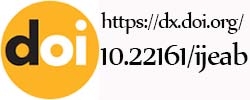Author: Chandana US
![]() DOI: 10.22161/ijeab.86.14
DOI: 10.22161/ijeab.86.14
Keyword: comparative study, digital tools, English proficiency, Technology-Enhanced Language Learning, traditional methods.
Abstract: This paper investigates the influence of technology-enhanced language learning on English proficiency by conducting a comparative study against traditional teaching methods. In a world increasingly reliant on English for academic, professional, and social communication, the effectiveness of language instruction is of paramount importance. The review of existing literature underscores the growing role of technology in language education, emphasizing its potential benefits such as accessibility and engagement. However, concerns regarding digital equity, overreliance on technology, and potential drawbacks have also surfaced. Given the diverse outcomes reported in previous studies, a systematic comparative study is crucial to gain a more nuanced understanding of the impact of the technology. The paper involves pre-and post-test assessments of participants drawn from various backgrounds who utilize digital tools or undergo traditional language instruction. Quantitative analysis enables a systematic comparison, providing insights into the effects of technology on language learning outcomes.The findings of the study will shed light on whether technology-enhanced language learning significantly enhances English proficiency compared to traditional methods. It acknowledges advantages of technology while addressing the need for a balanced approach to language instruction. The paper offers implications for educators and learners, highlighting the role of technology as a supplementary tool in English Language Teaching (ELT). Acknowledging limitations, including sample size and potential biases, this research contributes to discussions surrounding the integration of technology in ELT, ultimately aiming to empower learners in their pursuit of English proficiency in an interconnected world.
Article Info: Received: 19 Oct 2023; Received in revised form: 24 Nov 2023; Accepted: 05 Dec 2023; Available online: 14 Dec 2023
| Total View: 297 | Downloads: 28 | Page No: 136-138 |
Cite this Article:
MLA
Chandana US, P.(2023).The Impact of Technology-Enhanced Language Learning on English Proficiency: A Comparative Study of Digital Tools and Traditional Methods. International Journal of Environment Agriculture and Biotechnology(ISSN: 2456-1878).8(6), 136-138.10.22161/ijeab.86.14
Chandana US, P.(2023).The Impact of Technology-Enhanced Language Learning on English Proficiency: A Comparative Study of Digital Tools and Traditional Methods. International Journal of Environment Agriculture and Biotechnology(ISSN: 2456-1878).8(6), pp.136-138.
Chandana US. 2023."The Impact of Technology-Enhanced Language Learning on English Proficiency: A Comparative Study of Digital Tools and Traditional Methods". International Journal of Environment Agriculture and Biotechnology(ISSN: 2456-1878).8(6):136-138.Doi:10.22161/ijeab.86.14
Chandana US."The Impact of Technology-Enhanced Language Learning on English Proficiency: A Comparative Study of Digital Tools and Traditional Methods", International Journal of Environment Agriculture and Biotechnology,vol.8,no. 6, pp.136-138,2023.
@article { chandanaus2023the,
title={The Impact of Technology-Enhanced Language Learning on English Proficiency: A Comparative Study of Digital Tools and Traditional Methods},
author={Chandana US , R},
journal={International Journal of Environment Agriculture and Biotechnology},
volume={8},
year= {2023} ,
}
























